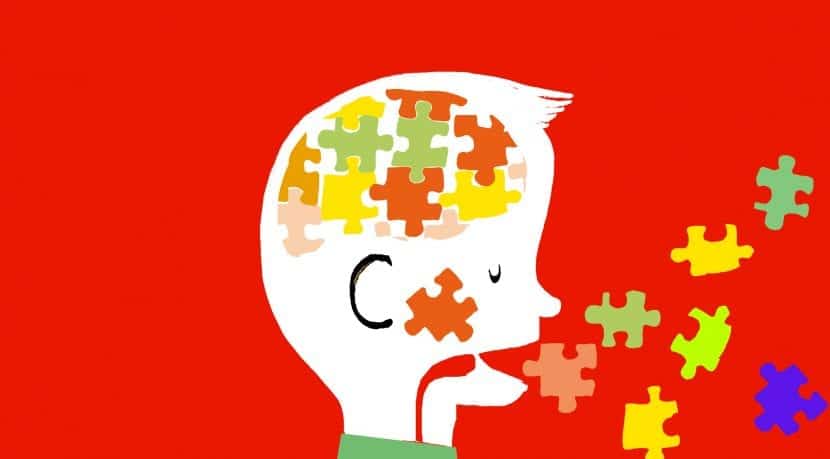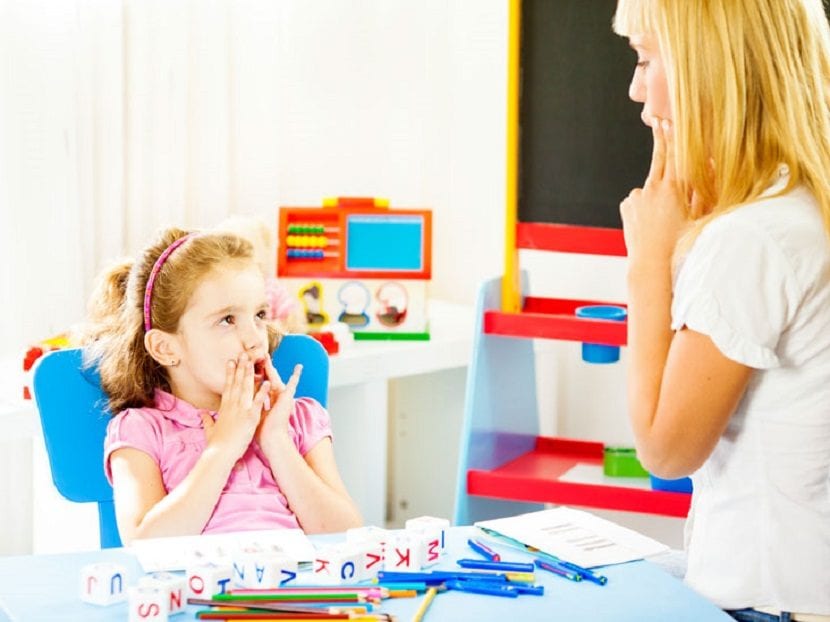
Today we want to talk to you about a speech disorder that is not very common, the apraxia. In this disorder the brain has difficulty planning speech, in other words, the child has difficulty making the precise movements that allow him or her to speak. It is not that the speech muscles are weak, but that they do not function normally because the brain has difficulty directing or coordinating the movements of the cheeks, lips, jaw and tongue.
It is possible that looking for information, you find the word verbal dyspraxia. It's another way of calling it. Interestingly, it appears to be a disorder that it affects boys more than girls. We keep telling you some other things.
Causes of apraxia of speech

Several several causes possible cases of infantile apraxia of speech, AHI in its acronym, as neurological brain disorders or lesions, especially in the left hemisphere; stroke, infections, or traumatic brain injury. It can also occur as a symptom of a syndrome, metabolic disturbance, or genetic disorder. For example, a high rate of childhood apraxia of speech has been found in children with galactosemia.
Research has advanced and it appears that abnormalities in the FOXP2 gene they increase the risk of AHI, and other speech and language disorders. The brain knows what it wants to say, but it is not capable of doing it in the correct sequence, nor the movements required to repeat the sounds.
Many children with childhood apraxia of speech have other problems communicating. These are not due to this condition, but it is seen together. But remember that the severity of apraxia of speech varies from person to person. It can be very mild, or in the most serious cases, they cannot communicate effectively when speaking, and they need other alternative supports, such as using sign language, or simply making natural gestures. So you're not, many children with apraxia communicate normally when they are older.
Symptoms and possible aids

As children develop language, that is, around 18 months and 2 years, symptoms begin, such as vowel and consonant distortions, syllable separation in or between words, voice errors. They also have language problems, such as a reduced vocabulary or a disorder in the construction of sentences. They are not able to imitate simple words. But, keep in mind that depending on the age and severity of their speech problems they may have one or more symptoms.
There are children with childhood apraxia of speech who have Difficulty positioning the jaw, lips, and tongue in the correct positions to make a sound and may have trouble moving to the next sound fluently. One of the characteristics of these children is hypersensitivity, they do not like some textures in clothing or certain foods, and curiously, they do not like brushing their teeth.
Childhood apraxia of speech is, or has been, treated with Talk therapy, in which children practice the correct way of saying words, syllables and phrases with the help of a speech therapist. It's a tough workout, with lots of reps. The normal thing is to visit the specialist 3 or 5 times. Then at home you will have to repeat the exercises twice a day, about 5 minutes. It will be the speech therapist who will give you the guidelines. Apart from attending the specialist, a physical or occupational therapist can also help. And above all patience, because children with apraxia tend to isolate themselves and close themselves off not to speak.
Some confusion
Sometimes it is difficult to diagnose this speech and sound disorder as infantile apraxia, because it is sometimes confused with an articulation problem, phonological disorders and dysarthria. By the way, if you want to read more about dysarthria, we recommend this article. There are two main types of apraxia of speech, but there are more: acquired apraxia of speech and childhood apraxia of speech.